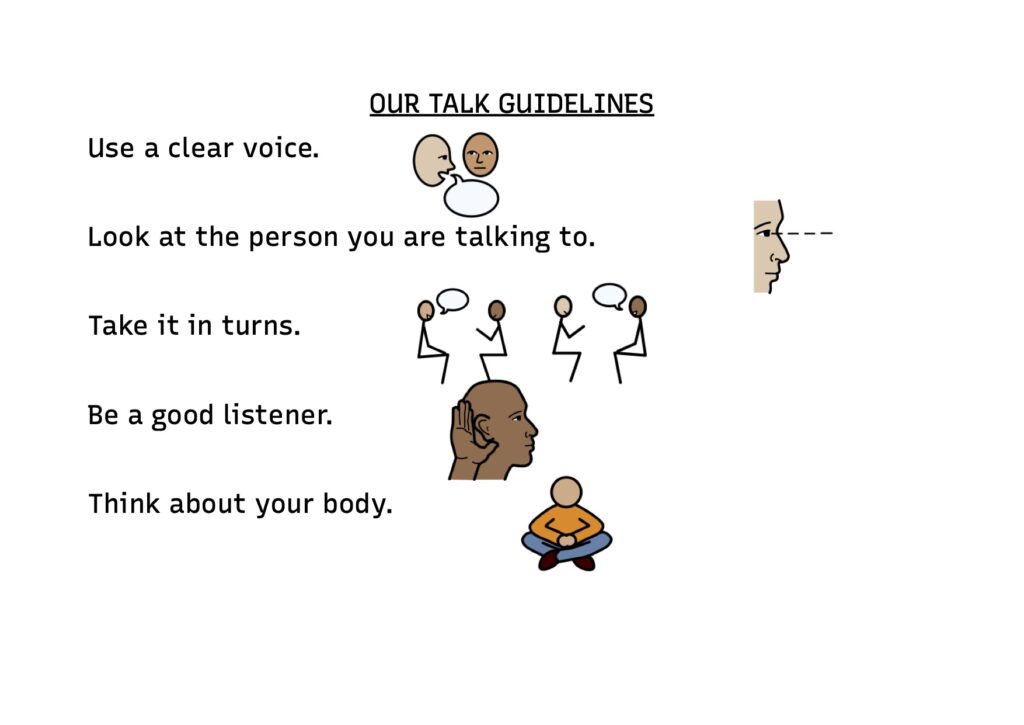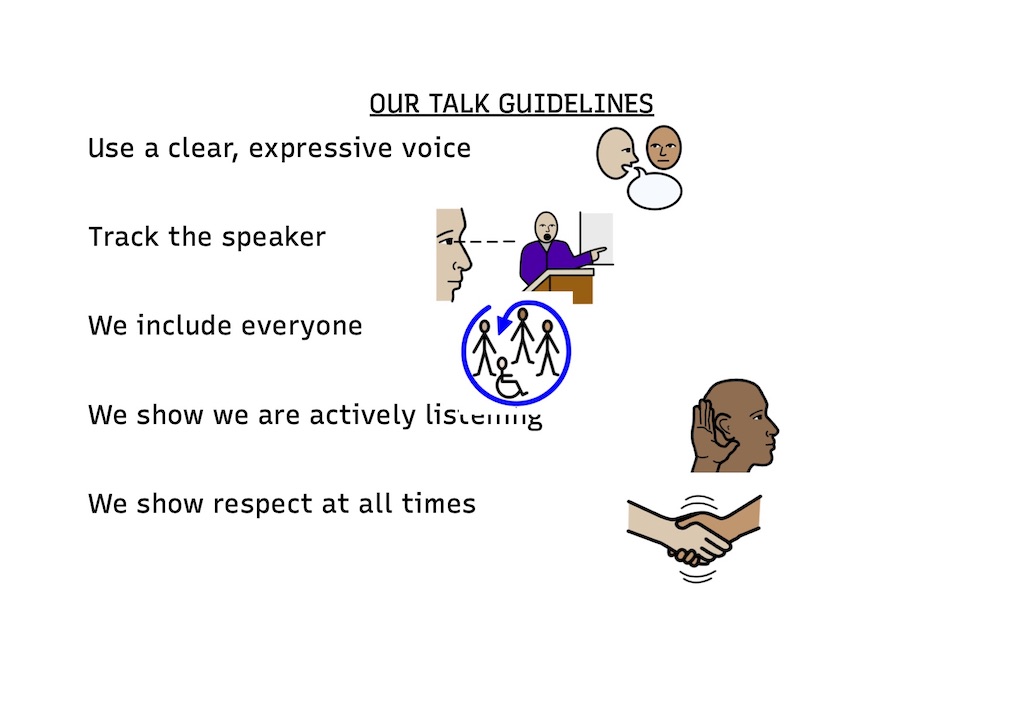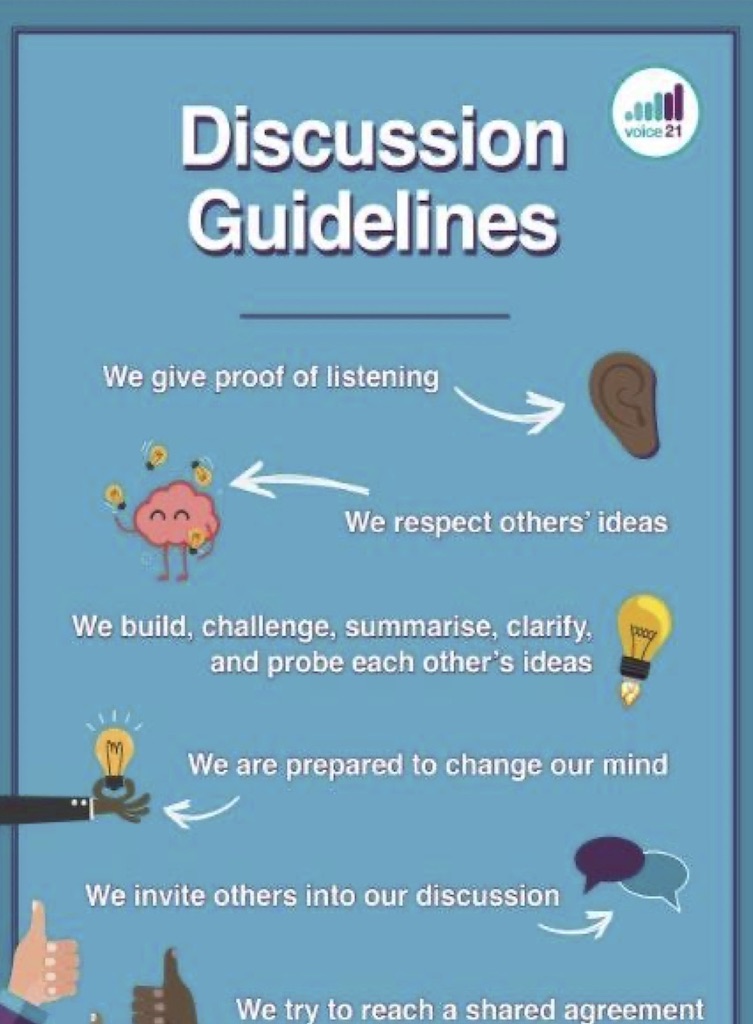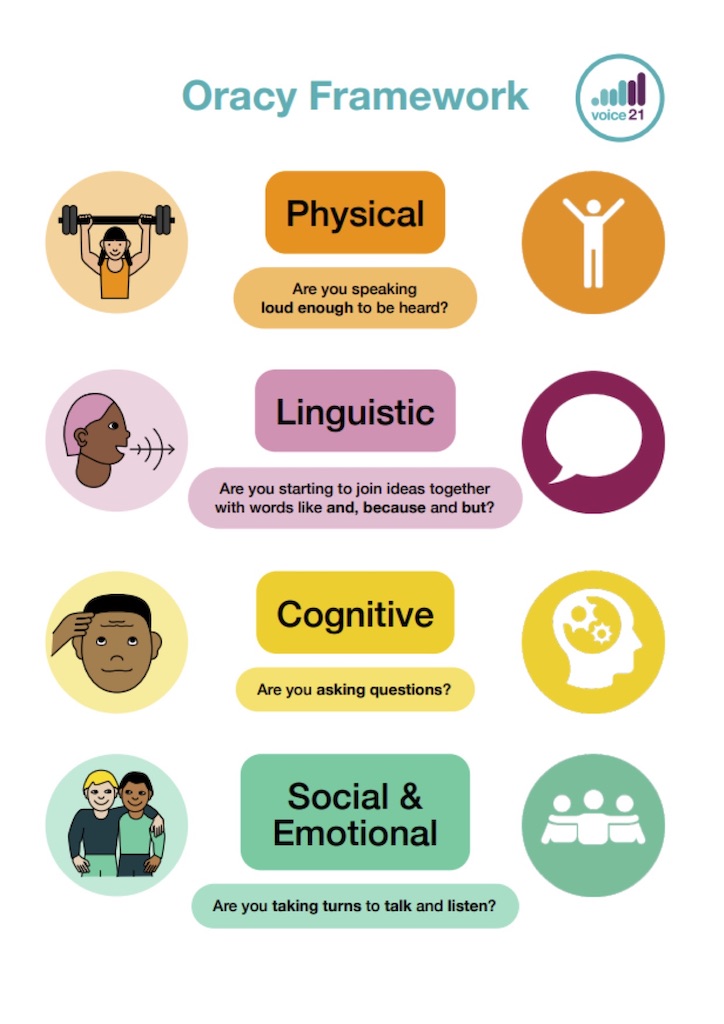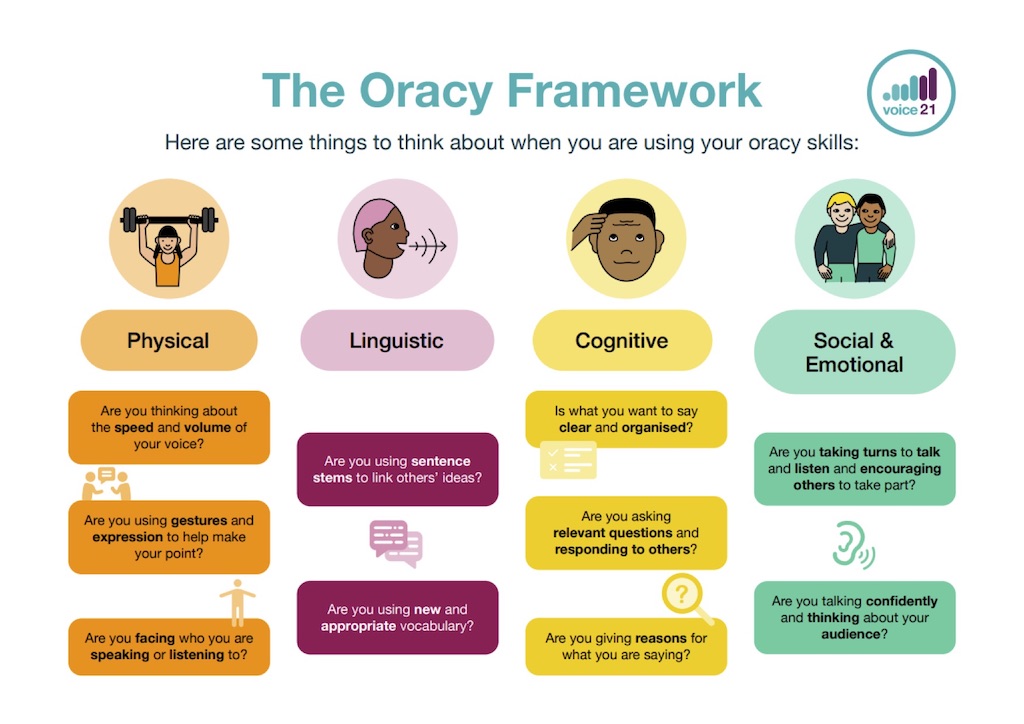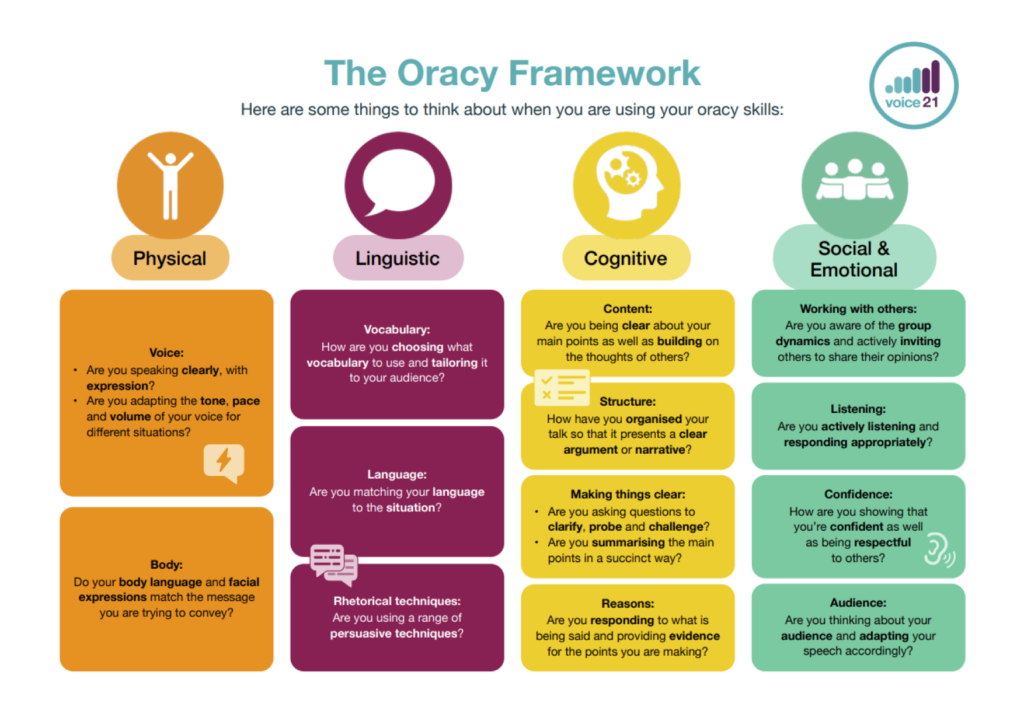What is Oracy?
Oracy is the ability to articulate ideas, develop understanding and engage with others through spoken language. At St.Mary’s Primary School, we believe spoken language to be essential to the well being, development and achievement of our children across the curriculum.
In school, oracy is a powerful tool for learning; by teaching children to become more effective speakers and listeners we empower them to better understand themselves, each other and the world around them.
At St.Mary’s Primary School, everyone is respected, included and each voice is valued. We will support every member of our school to have the confidence and emotional intelligence to communicate effectively, build positive relationships and prepare for their next steps in life.
Not only do we feel it is important to teach children to learn to talk, we also believe that children learn most effectively through talk. We encourage talk in all our lessons to allow children to collaboratively discuss ideas, thoughts and judgements. Children take responsibility for their own learning through talk and discover new information in pairs, trios, circles, and a variety of other groupings.
What are the benefits of an Oracy education?
Oracy increases confidence, empowering children with the belief that their voice has value, developing the ability to articulate thoughts so others will listen. Research has shown that structured talk in class benefits children’s confidence and self-esteem.
Oracy improves academic outcomes, developing learners who can think critically, reason together and have the vocabulary to express their knowledge and understanding.
Oracy Fosters well-being, supporting children to build successful relationships, talk through issues, express feelings and resolve conflicts. The fact that well-being is supported by talk, whether that’s talking through a problem with a friend, or using talk to build strong relationships in the first place, is well supported by the research literature.
Oracy equips students to thrive in life beyond school helping them to progress, access employment and engage in civic life. Discussion and debate are central to democratic life – the oracy skills needed to discuss complex or emotive issues with honesty and compassion are crucial. Oracy is also important for children to thrive in employment, with businesses frequently emphasising the value of teamwork and communication skills.
“The national curriculum for English reflects the importance of spoken language in pupils’ development across the whole curriculum – cognitively, socially and linguistically.”(DfE 2013)
Through a high quality oracy education students learn through talk and to talk. This is when they develop and deepen their subject knowledge and understanding through talk in the classroom, which has been planned, designed, modelled, scaffolded and structured to enable them to learn the skills needed to talk effectively.
Discussion Guidelines
All classes have agreed on their ‘Discussion Guidelines‘ which sets out how everyone in the class (including the adults) will work together to ensure that everyone has a voice and that their contributions are valued.
- EYFS/KS1 DISCUSSION GUIDELINES
- LKS2 DISCUSSION GUIDELINES
- UKS2 DISCUSSION GUIDELINES
We have introduced the ‘Oracy Frameworks’ so that children know what oracy skills they are working towards:
- EYFS ORACY FRAMEWORK
- KS1 ORACY FRAMEWORK
- KS2 ORACY FRAMEWORK
Children are encouraged to use ‘Talk Tactics’ to support them in developing their oracy skills across the curriculum. This is further supported by the use of sentence stems and key vocabulary in lessons.
Talk partners – What, why and how?
Learn how to effectively implement and manage talk partners in your classroom to enhance communication skills, increase student engagement and foster a supportive learning environment.
Author: Teachit’s editorial team
Published: 31/07/2024
What are talk partners?
Talking partners, also known as talk partners, are a collaborative learning strategy where students are paired up to discuss their thoughts and ideas on a particular topic or question. This approach encourages active participation and helps to develop speaking and listening skills in a structured manner. By regularly rotating partners, students get the opportunity to work with different classmates, fostering a more inclusive and supportive classroom environment.
Benefits of using talk partners
- Enhanced communication skills. Talk partners help students to articulate their thoughts clearly and listen actively to their peers. This practice gradually improves their verbal communication skills, which are essential for academic success and personal development.
- Increased engagement. When students are given the chance to discuss their ideas with a partner, they often become more engaged in the lesson. This increased engagement can lead to a deeper understanding of the material and greater retention of information.
- Confidence building. For students who are shy or reluctant to speak in front of the whole class, talk partners provide a safer and less intimidating platform to express their ideas. This can significantly boost their confidence over time.
- Peer learning. Talk partners promote peer learning by allowing students to share different perspectives and solutions. This collaborative approach can lead to a richer learning experience as students learn from each other.
What Is The ABC Questioning Technique?
ABC discussions stands for:
- A = AGREE
- B = BUILD
- C = CHALLENGE
The AGREE, BUILD and CHALLENGE (ABC) Questioning Method is a teaching technique used to encourage enhanced discussion and thinking when conducting question and answer sessions in the classroom.
The teacher will use ABC questioning to encourage students to AGREE with other student views, BUILD upon each other’s ideas and CHALLENGE each other’s opinions.

Wellcomm
WellComm helps us to identify children who are experiencing barriers to speech and language development so that we can support them early in their education journey. Trained practitioners work with the children on their targets identified from their Wellcomm assessment. Wellcomm assessments are updated half termly.

 015242 71334
015242 71334 admin@stmarys-kl.cumbria.sch.uk
admin@stmarys-kl.cumbria.sch.uk

